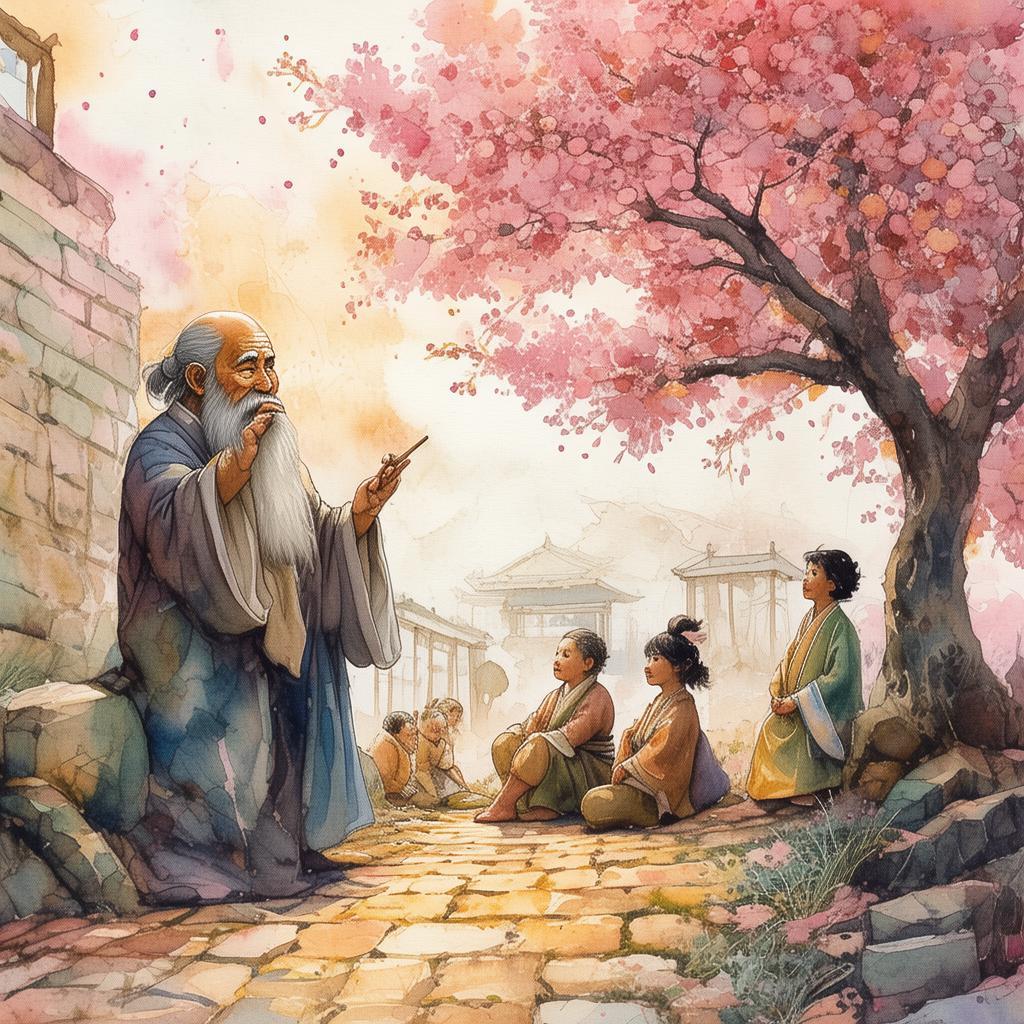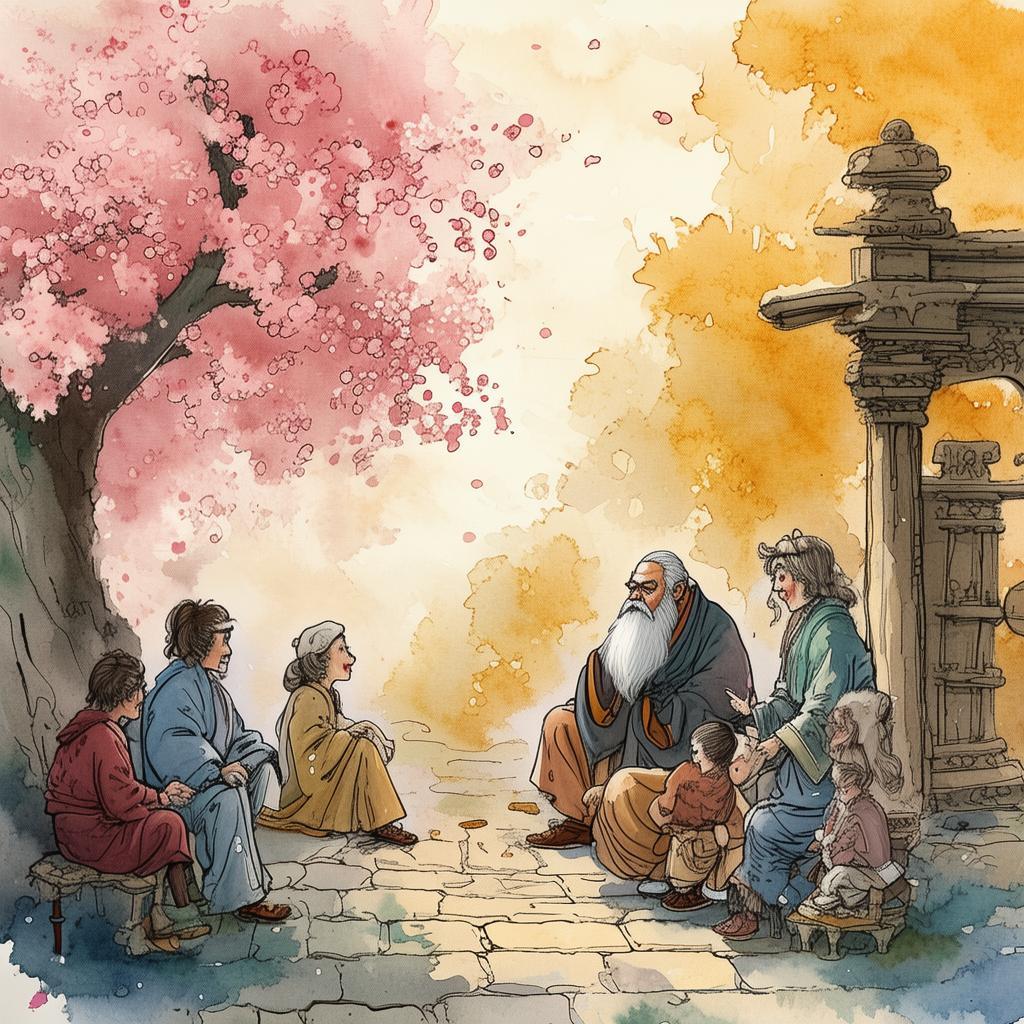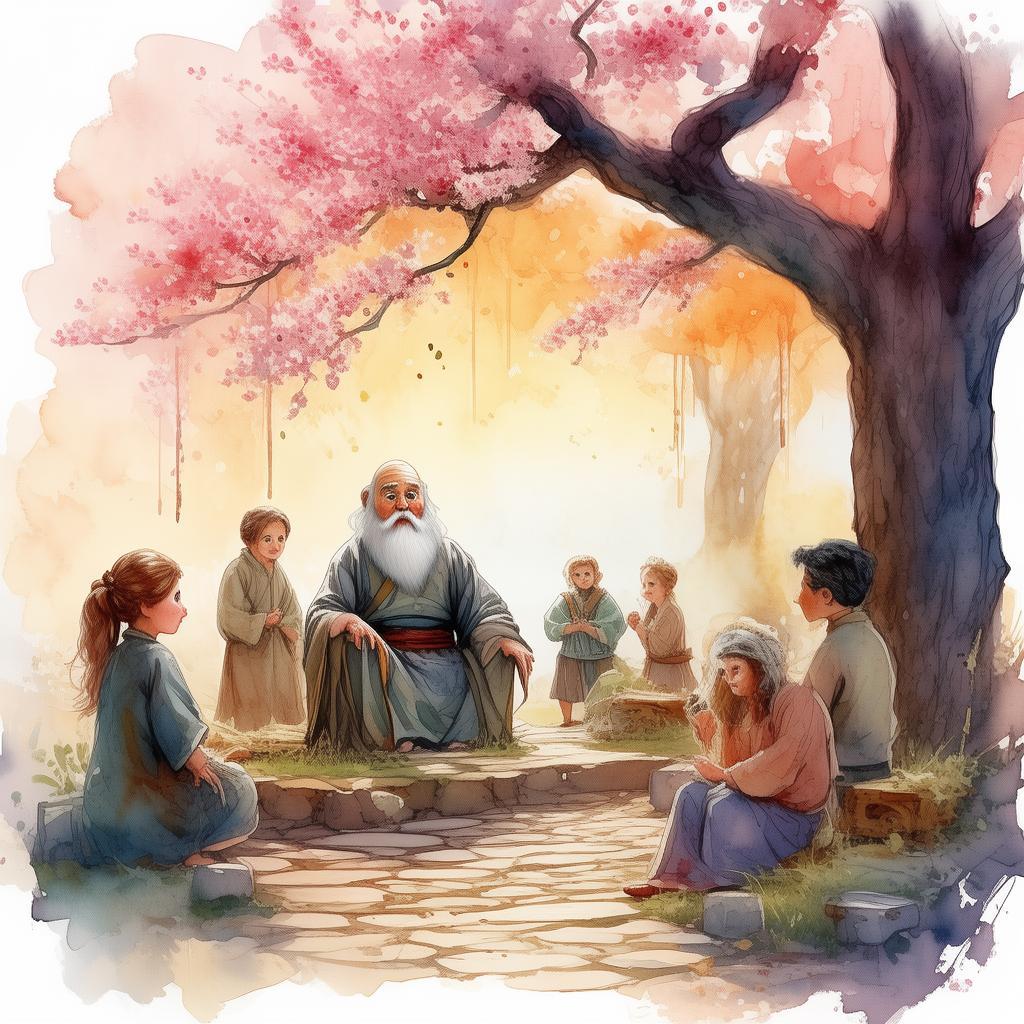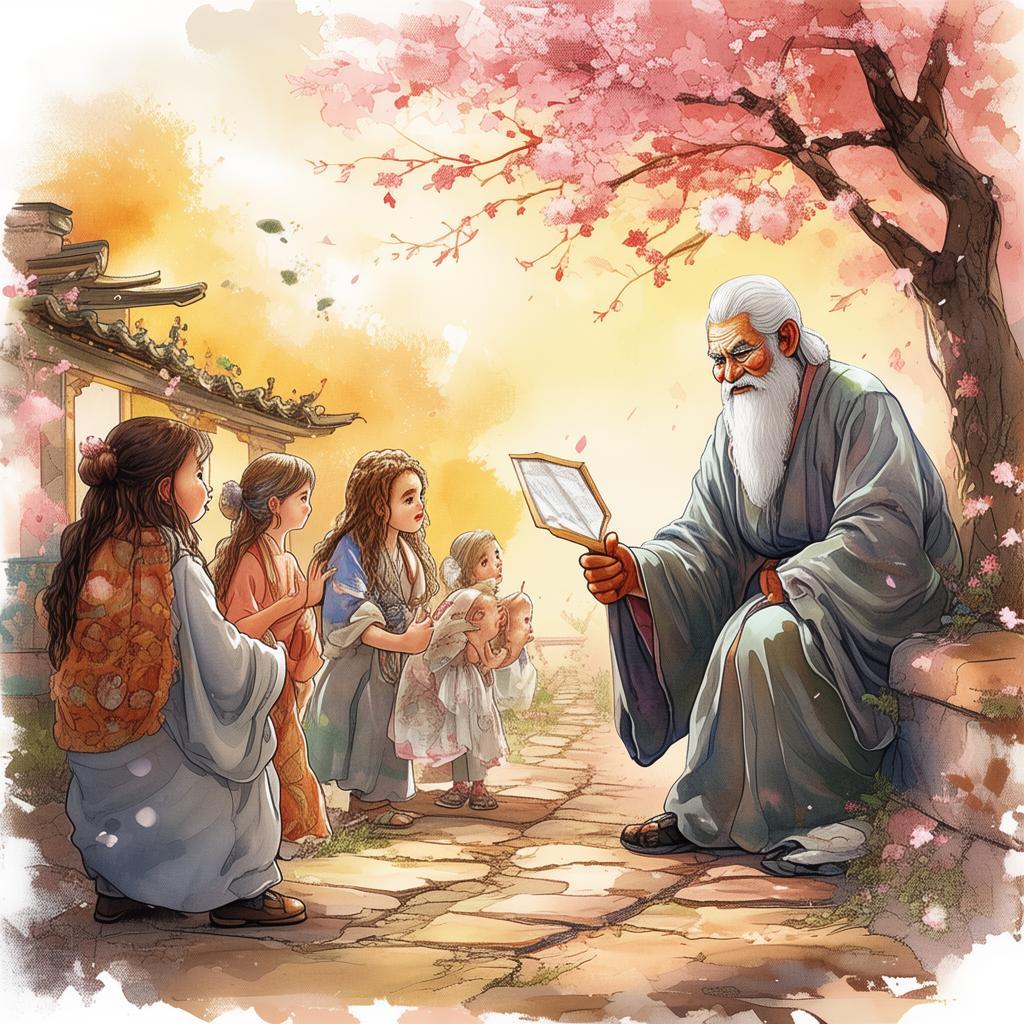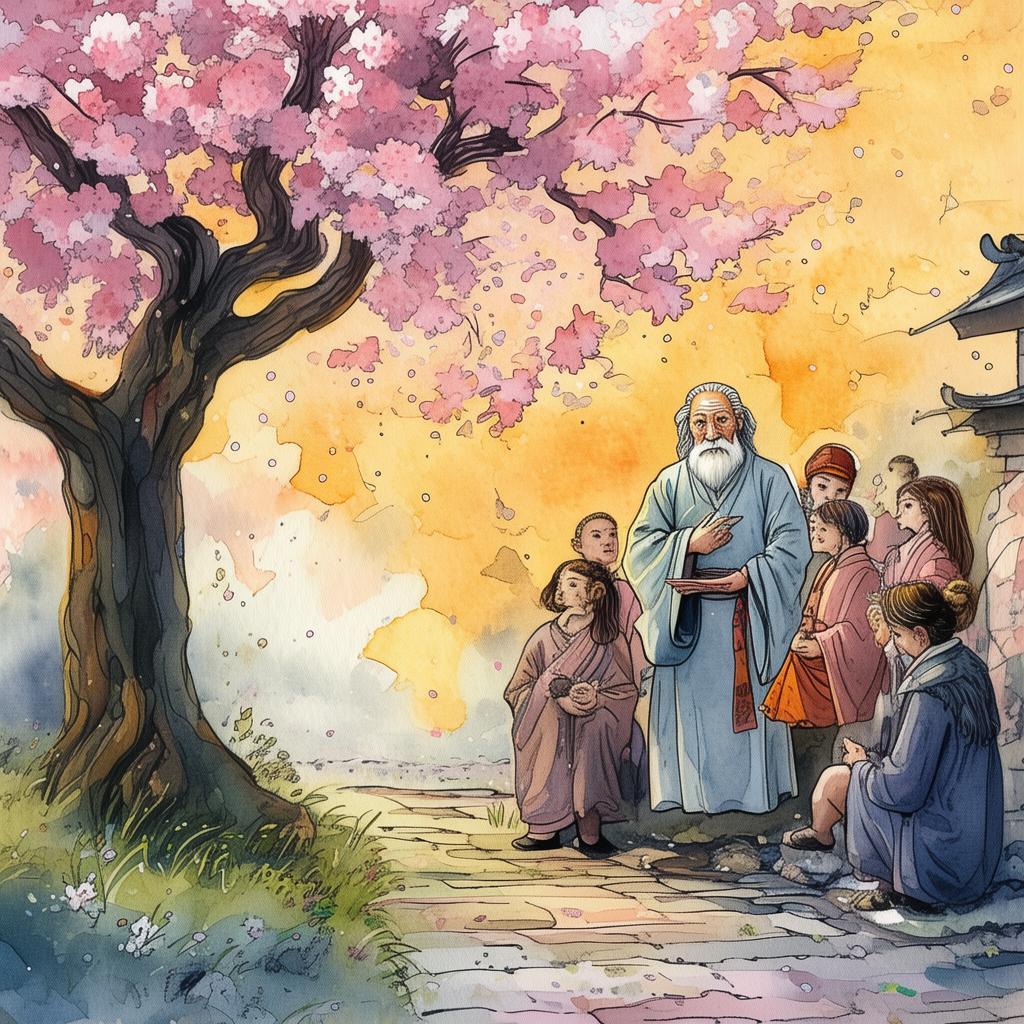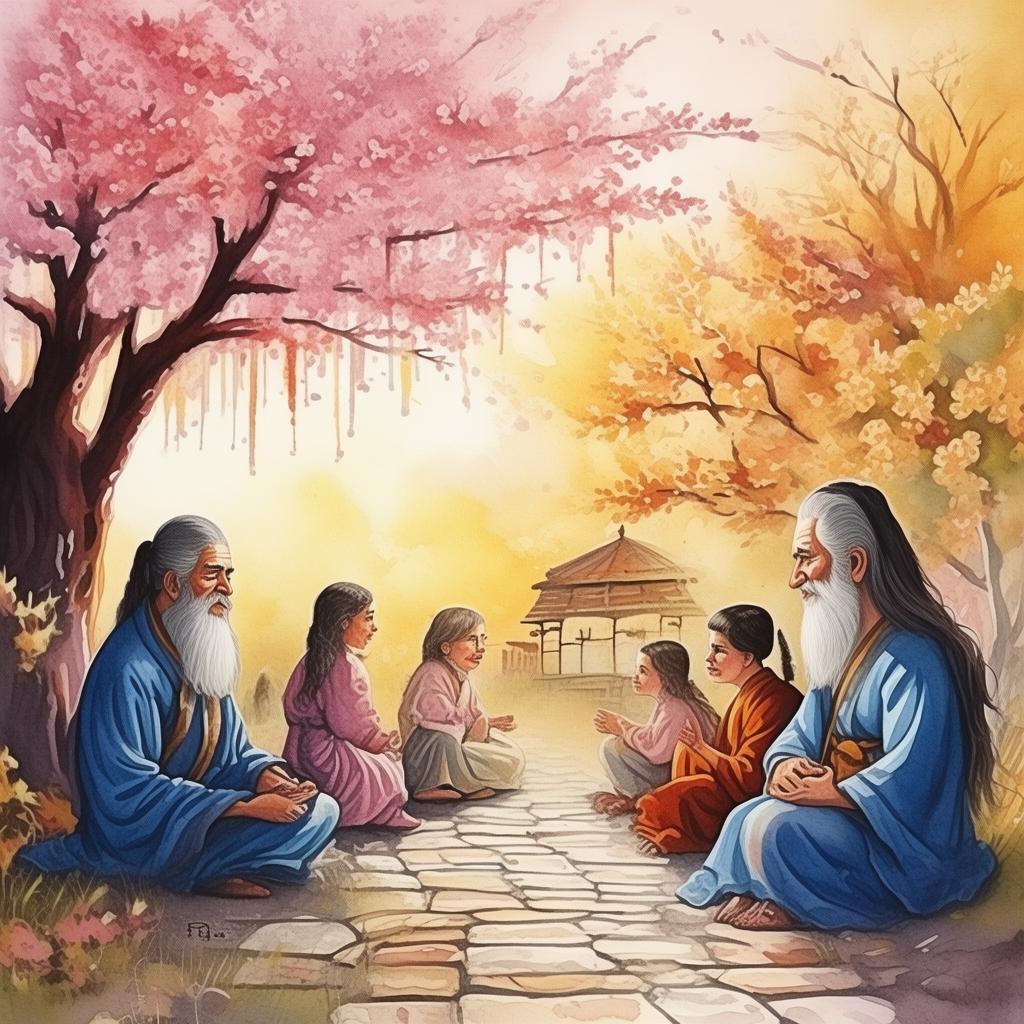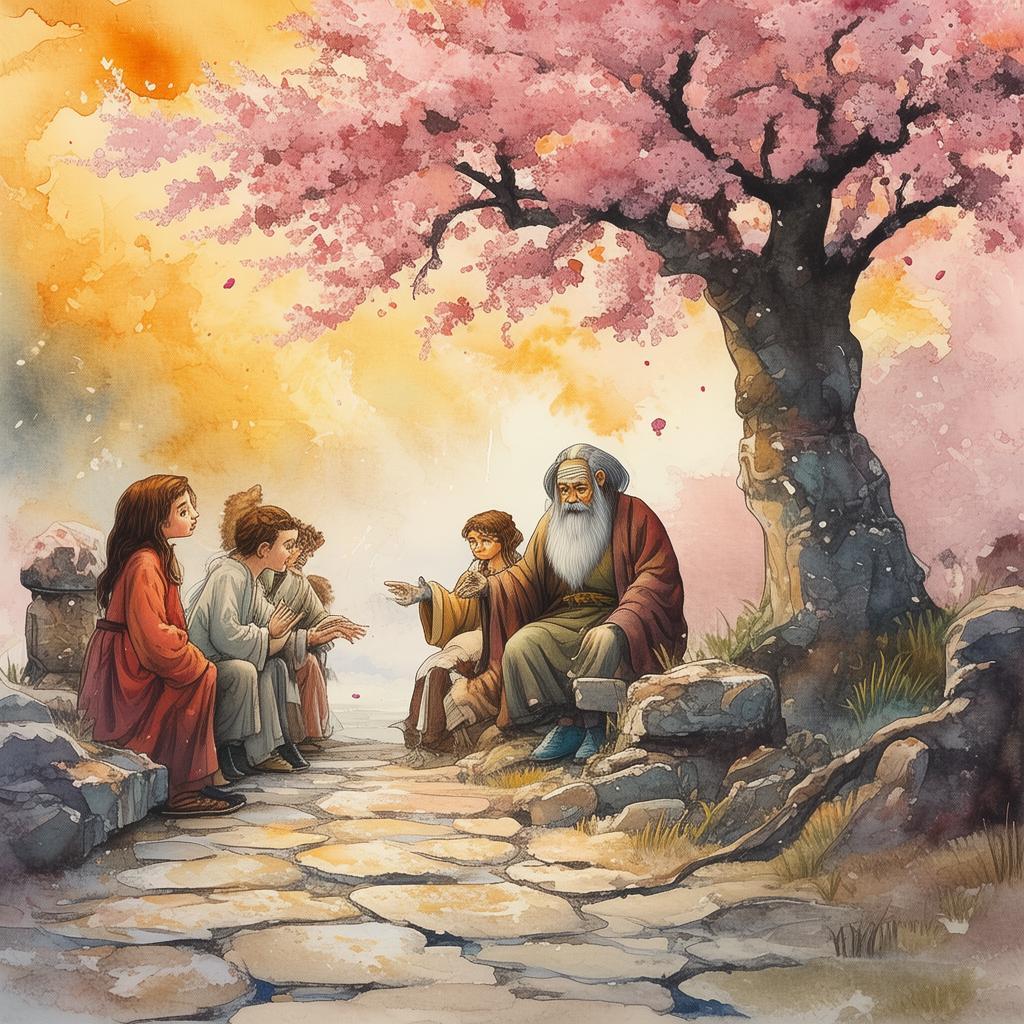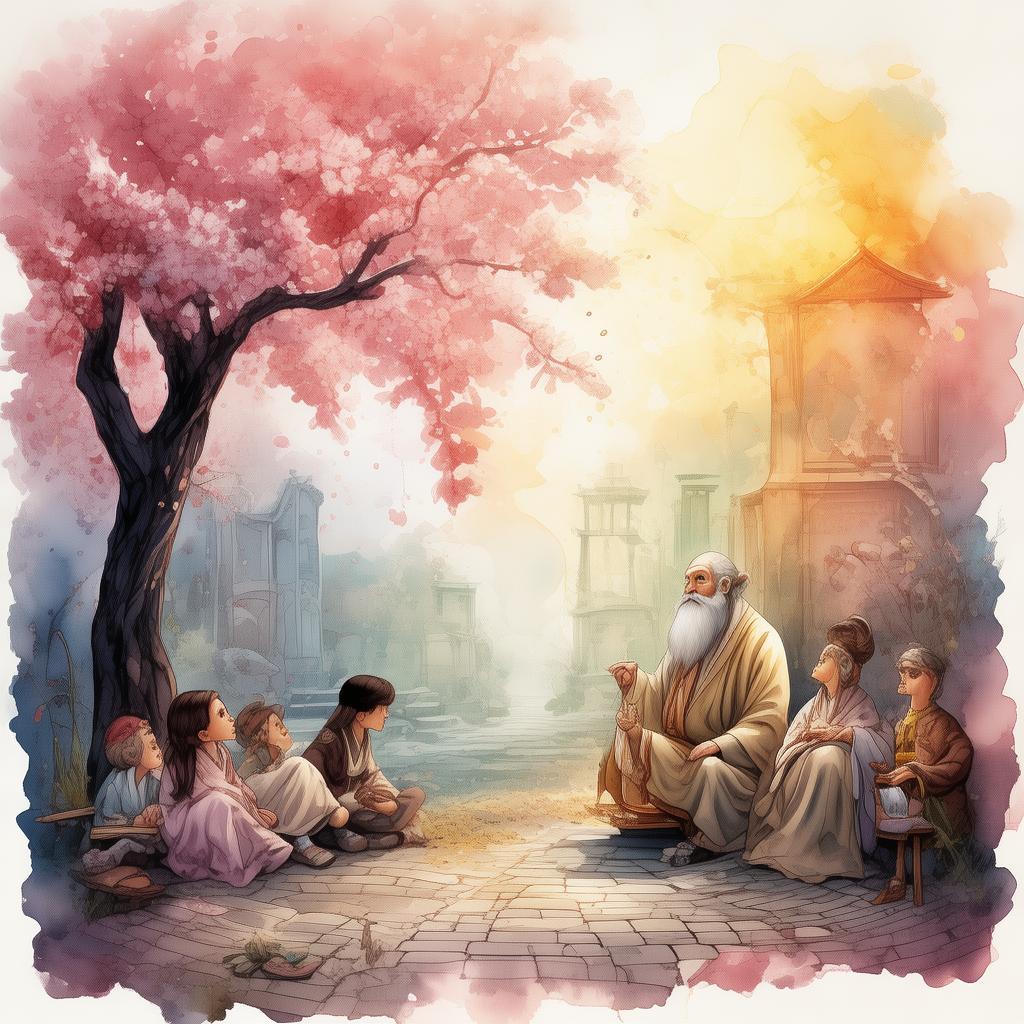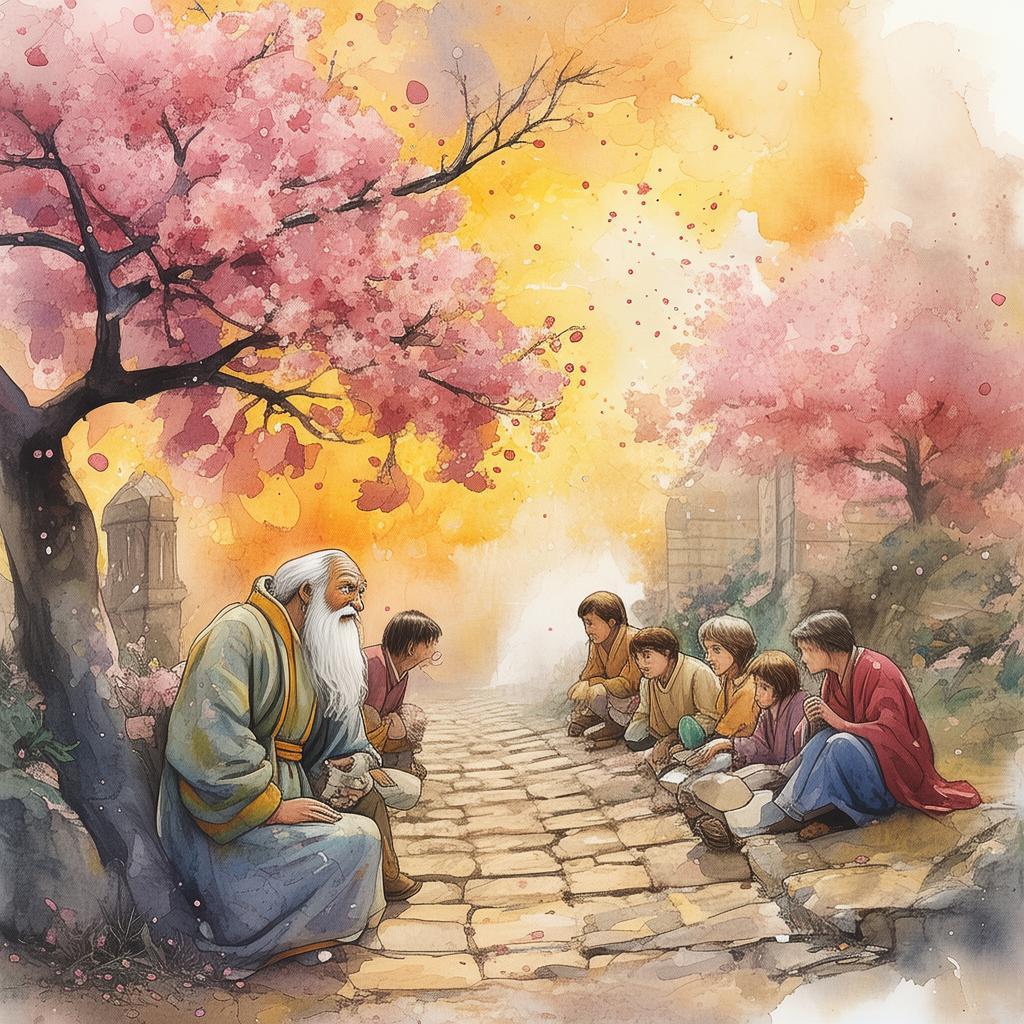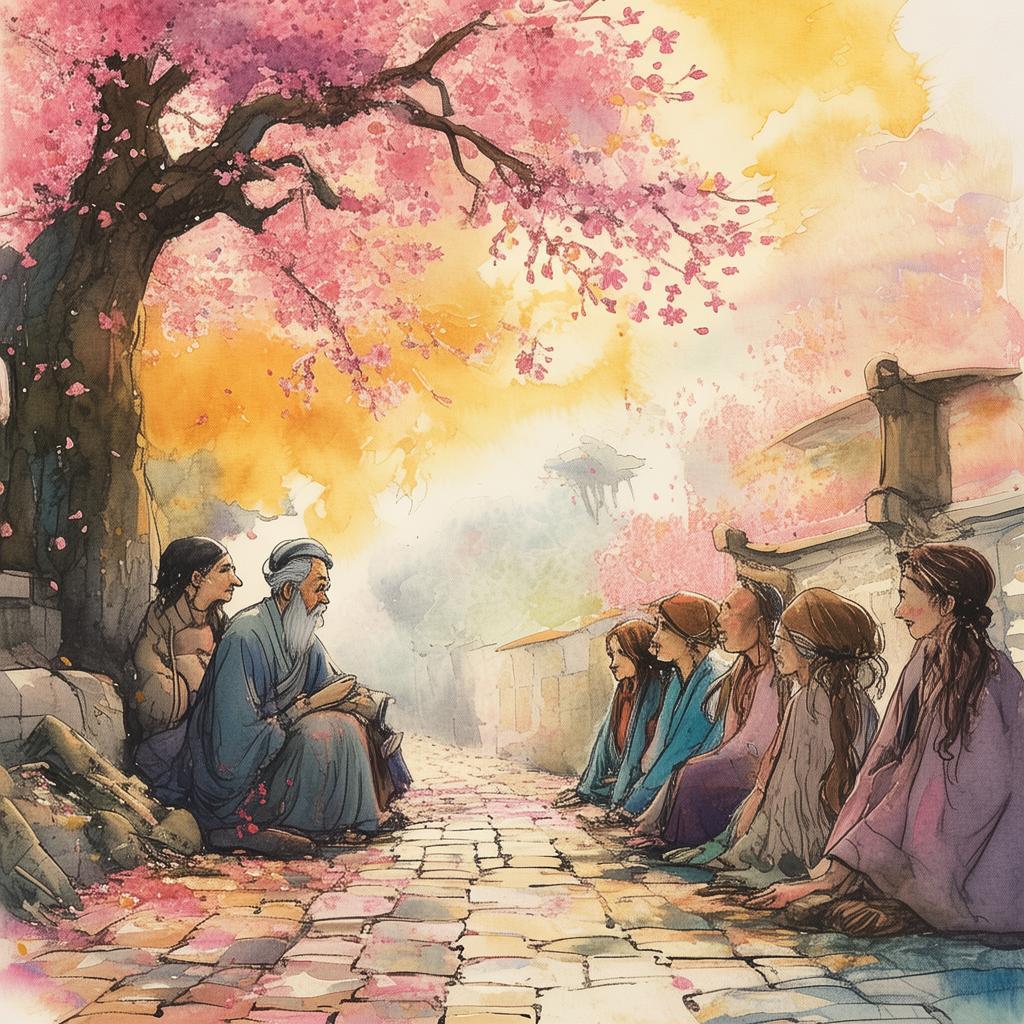Time's Flavors: The Chef Who Unlocked Dynasty Secrets
In the bustling heart of Beijing, amidst the maze of narrow alleys and towering skyscrapers, there lived a chef named Liang. He was no ordinary chef; his restaurant, "The Taste of Time," was renowned for its fusion of modern and ancient Chinese cuisine. The walls of his kitchen were adorned with ancient cooking utensils and scrolls of forgotten recipes. It was there, in the heart of his kitchen, that Liang discovered an old, leather-bound book with a cryptic title: "The Chef's Journey Through the Eras."
One rainy evening, as Liang was cleaning the bookshelves, his fingers brushed against the leather-bound tome. Curiosity piqued, he opened it to find a recipe for a dish called "The Emperor's Delight," a dish said to have been prepared for the emperors of ancient China. The recipe was incomplete, with some ingredients and instructions written in a language he couldn't decipher. Determined to uncover the dish's true potential, Liang began to experiment with the ingredients he could find.
As he prepared the dish, something strange happened. The air around him seemed to shimmer, and he felt a strange pull. Liang found himself standing in a bustling market, surrounded by the sights and sounds of ancient China. The people around him were dressed in traditional attire, and the market stalls were filled with exotic spices and fresh produce.
Liang's next stop was the imperial kitchen, where he met the head chef, a wise old man named Master Hua. Master Hua was intrigued by Liang's presence and the dish he had prepared. He explained that the incomplete recipe was a portal to the past, a way to travel through time and experience the culinary secrets of ancient dynasties.
With Master Hua's guidance, Liang embarked on his journey through time. His first destination was the Tang Dynasty, where he learned the art of making mooncakes, a traditional Chinese pastry that symbolizes reunion and prosperity. As he worked alongside the imperial chefs, Liang discovered the intricate process of blending flavors and the importance of seasonal ingredients.
Next, Liang traveled to the Song Dynasty, where he was introduced to the art of tea-making. The Song Dynasty was known for its tea culture, and Liang learned the delicate process of selecting and preparing tea leaves. He even had the opportunity to taste the legendary "Dragon Well" tea, which was said to have medicinal properties.
The journey continued, taking Liang to the Yuan, Ming, and Qing dynasties, each with its own unique culinary traditions. In the Yuan Dynasty, he learned to make dumplings, a dish that was a staple in the imperial court. In the Ming Dynasty, he discovered the art of making jianbing, a savory pancake that is still popular in modern China. And in the Qing Dynasty, he mastered the art of making Peking duck, a dish that is a symbol of luxury and refinement.
Throughout his journey, Liang encountered many challenges. He had to adapt to the changing times, learn new cooking techniques, and navigate the political landscape of each dynasty. But with each new challenge, he grew as a chef and as a person.
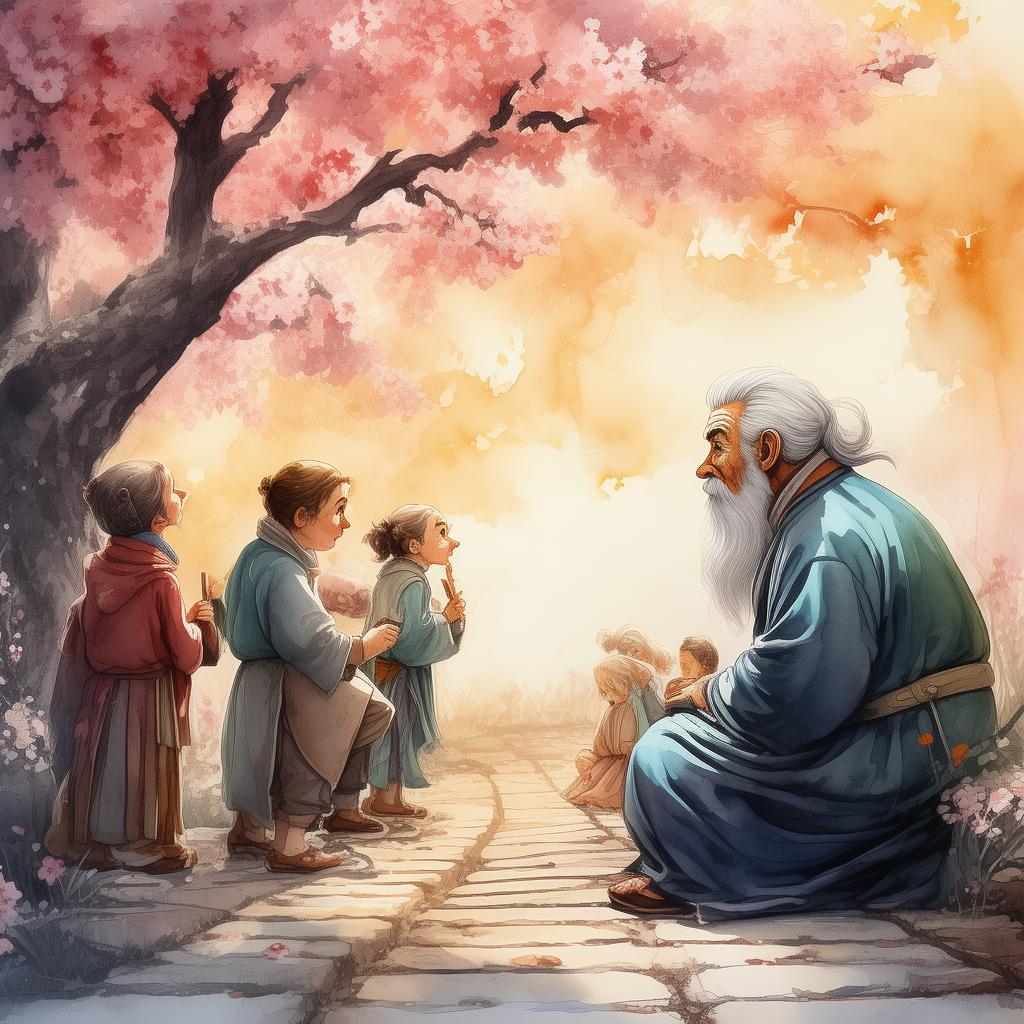
As Liang returned to the present, he realized that his journey through time had not only enriched his culinary skills but also given him a deeper appreciation for the history of his culture. He began to incorporate the flavors and techniques he had learned into his restaurant's menu, creating dishes that celebrated the rich culinary heritage of China.
One evening, as Liang was preparing a special dinner for a group of guests, he received a mysterious package. Inside was a scroll, which contained the final piece of the "The Chef's Journey Through the Eras" recipe. The scroll revealed the secret ingredient that would complete the "Emperor's Delight" dish: a rare, ancient spice known as "Time's Flavors."
With the scroll in hand, Liang prepared the dish once more. As he took the first bite, he felt a surge of energy course through his body. The flavors were unlike anything he had ever tasted, and he knew that he had unlocked the true power of the recipe.
Liang shared his discovery with Master Hua, who was overjoyed to see his apprentice's growth. Together, they decided to open a new restaurant, dedicated to the culinary secrets of the past and the future. The restaurant, "Time's Flavors," quickly became a beacon of culinary excellence, attracting food enthusiasts from all over the world.
Through his journey through time, Liang had not only uncovered the hidden secrets of ancient China but also discovered the power of culinary tradition to connect people across the ages. And so, the tale of the chef who unlocked dynasty secrets lived on, a testament to the enduring power of food and the unyielding spirit of a man who dared to dream.
✨ Original Statement ✨
All articles published on this website (including but not limited to text, images, videos, and other content) are original or authorized for reposting and are protected by relevant laws. Without the explicit written permission of this website, no individual or organization may copy, modify, repost, or use the content for commercial purposes.
If you need to quote or cooperate, please contact this site for authorization. We reserve the right to pursue legal responsibility for any unauthorized use.
Hereby declared.
